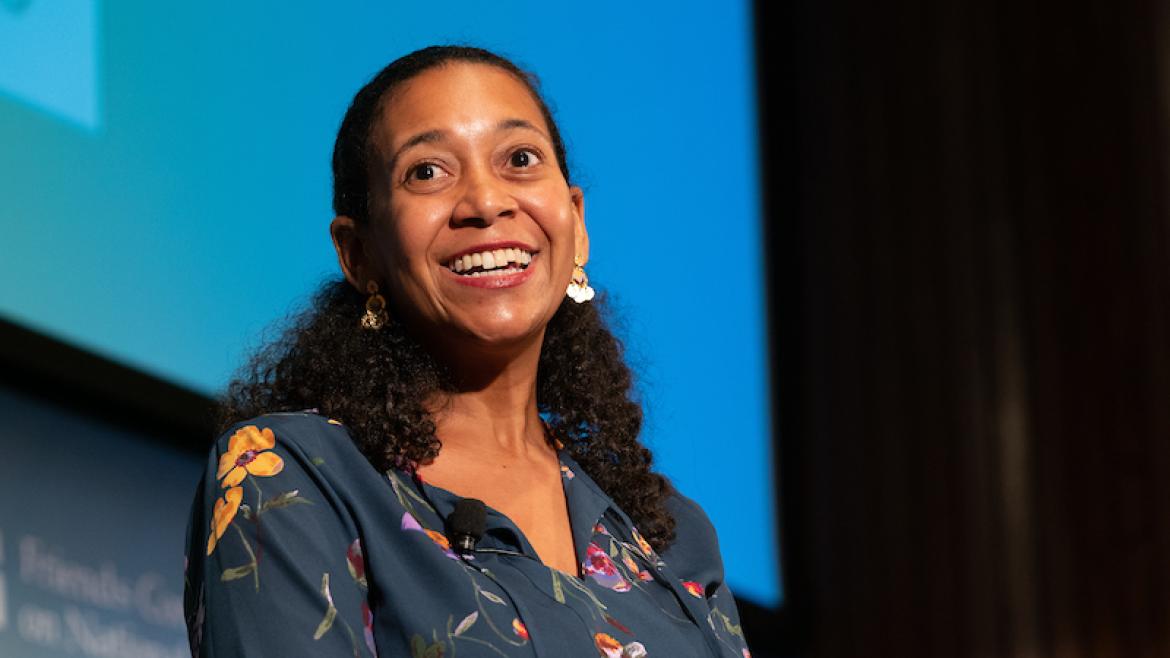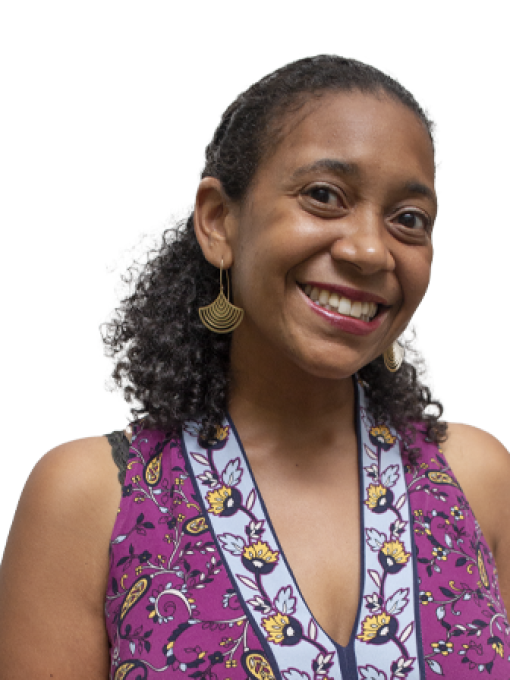Each year the Friends General Conference—an association of local and regional Quaker Organizations in the United States and Canada—gathers for a week of worship, learning, and community among Friends. This year, The Gathering took place in Oregon, and the theme was listening.
I was invited to address the group, and in my plenary talk, “Listening as a Prerequisite for Solidarity,” I shared five invitations:
- May we listen to that of God within us.
- May we listen to the lessons from history.
- May we listen to communities.
- May we listen to individuals.
- May we listen to the light as we co-create beloved community.
FCNL’s advocacy answers all five of these calls.
May we listen to that of God within us.
In Pirkei Avot, Rabbi Tarfon commented on Micah 6:8, saying, “Do not be daunted by the enormity of the world’s grief. Do justly, now. Love mercy, now. Walk humbly, now. You are not obligated to complete the work, but neither are you free to abandon it.”
This goes to the core of our work. As Friends who are struggling together to build a better world, FCNL advocates for a range of issues and offers many ways for our network to engage. We empower and support each member of our community as they discern what is uniquely theirs to do. That helps guide and strengthen our advocacy for just public policy. It also helps us to be resilient and responsive to the changing needs of the world, Congress, and our community.
May we listen to the lessons from history
This year FCNL celebrates 80 years of advocacy for peace and justice. We have learned a great deal from our history advocating for policies grounded in the Quaker testimonies. That history informs our approach to each of our priorities.
Learning these lessons can be inspiring, but they can also be painful. For example, our history includes the legacy of Quaker “boarding schools” that separated Indigenous children from their communities and cultures. This is an example of Quaker history that we want to listen to and learn from so that we can build a more just future. Rather than simply condemning the mistakes of those who came before, we are cultivating partnerships with impacted community members and creating opportunities for restorative advocacy, such as when we speak up for the creation of a Truth and Healing Commission on Indian Boarding Schools.
May we listen to communities
A central element of FCNL’s advocacy work is storytelling. We listen to and amplify the stories of those who are experts in our issue areas because of their life experiences. We seek to build authentic relationships with the communities most impacted by the laws and policies of the United States, and we continue to evolve our advocacy based on what we hear as the needs of these communities.
Examples of these partnerships include the relationships we build with migrant communities for our migration advocacy, with Yemeni communities for our Middle East advocacy, and with coal mining communities as part of our environmental justice advocacy.
May we listen to individuals
We may believe that we understand the needs of the communities we seek to be in solidarity, but we will only know each individual’s story if we ask and listen.
Those individual stories often make the difference in a lobby visit with members of Congress and their staff. One of the most powerful lobby visits I have ever participated in included people from a community downwind from a nuclear testing site. As those individuals shared the stories of the impact of nuclear weapons on their families, their voices meant more to the Congressional offices they visited than any statistics ever could.
May we listen to the light as we co-create beloved community
Friends are led to listen to that of God within us and answer that of God in others. FCNL’s model for advocacy acknowledges how important each of our roles is in building the world we seek. We each have expertise, whether in policy or our own lived experience. All of our stories matter.
As we grow the diversity of our FCNL staff and network and expand our partnerships with communities and coalitions, we increase our opportunities to understand better how we can build beloved community together.
I hope you will join us on this journey of deep listening and action. To learn about ways to partner with FCNL and join us in listening deeply and speaking up in solidarity, head to fcnl.org/act. We are always eager to hear from our network and friends.

